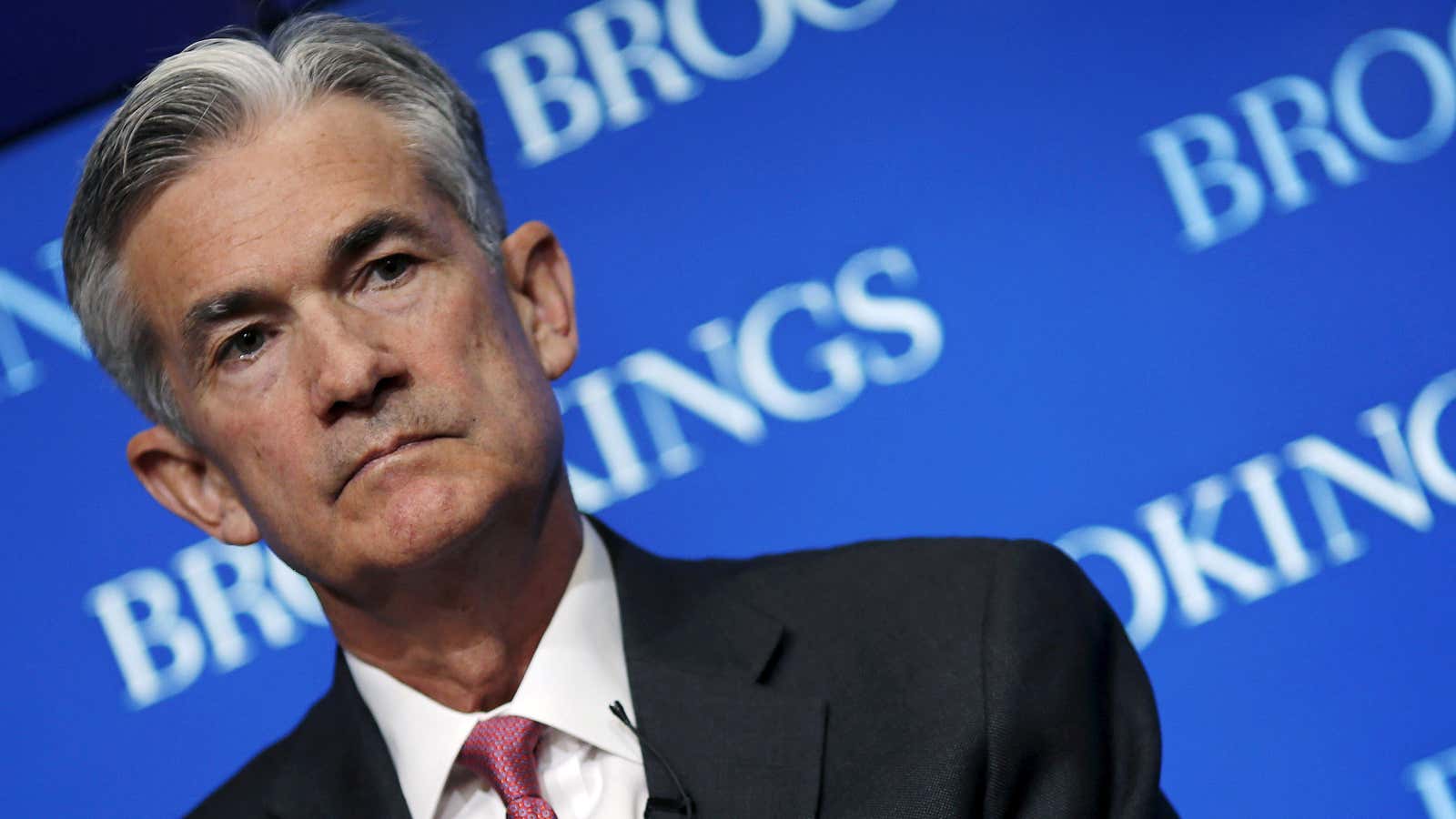Jerome Powell, who does not have any kind of degree in economics, is the man “who will, hopefully, do a very good job“ as the next chair of the US Federal Reserve, a prime steward of the American economy.
To many critics, his nomination is a purely partisan move. “Today’s decision to not reappoint Janet Yellen as Chair of the Federal Reserve is the wrong one, and was seemingly rooted in simple-minded partisanship,” said Josh Bivens of the liberal-leaning think tank, the Economic Policy Institute. “That demanded a Republican president replace a Democratic appointee as Fed chair.”
To other observers, it’s simply about Donald Trump’s need to have a Fed chair that has his personal stamp of approval. “By opting for Jerome Powell, a Fed governor for five years, President Trump is opting for a nominee he can effectively call his own but isn’t so outside the mainstream that it rattles markets,” believes Mark Hamrick, a senior economic analyst at Bankrate.com. “After all, the first rule for the Fed is to do no harm.”
1. Is Powell up to the task?
Some experts, such as Bill Gross, Janus Henderson Group’s fund manager, believe that without a doctorate in economics, Powell will struggle in the face of a crisis. History suggests that Ben Bernanke and Janet Yellen’s academic pedigrees were keenly important in handling the 2008 recession. Still, Powell’s practical experience, as both a lawyer and an investment banker, could serve him well in handling the nitty-gritty of bank regulation, increasingly more important to the role of Fed chair.
Others, like Mohamed A. El-Erian, chief economic advisor at Allianz SE, believe Powell’s nomination by Donald Trump is a wise and welcome decision for markets. Powell is highly respected in both political and professional circles, and likely will continue the Fed’s current policy. He’s also said to be a good listener; he may not have been schooled in the nuances of certain economic models, but he’ll be sure to question staffers (paywall) until it’s clear.
2. How important is his government experience?
His support on Capitol Hill—where he must be confirmed by the Senate—may even warm Powell to Fed critics, an important step in establishing the political independence of the Fed. Powell, a registered Republican, worked at the Treasury under George H.W. Bush. In 2012, Powell joined the Fed Board of Governors, and has worked there ever since.
The confirmation process comes with a lot of rightful anxiety, because the chair of the Fed is a hugely important role. On paper, Powell and the rest of the Federal Open Market Committee are tasked with directing the gradual rise of the US interest rate, which has long-term repercussions for the global economy. In the short term, this doesn’t do much at all, besides temporarily startling markets.
3. Can he steer the big unwinding?
The looming question remains: Does the never-attempted task, of unwinding the $4.5-trillion balance sheet—which the Fed racked up to revive the post-recession economy—require a PhD? No one is quite sure what the lasting effects of such a process will be.
While Yellen set the stage for a gradual, careful, and lengthy asset-program exit, a mishap could have large and little-understood effects. Powell has said he plans to stick to Yellen’s design (paywall). At the very least, we know Powell’s time spent in private equity ensures he knows a thing or two about the importance of exits.
